 People say that “rules are made to be broken” for a reason.
People say that “rules are made to be broken” for a reason.
When there’s an easier way to get things done, or policies don’t seem to make sense, there’s certainly a temptation to bypass them and do what seems “right.” Yet, rules exist for a reason—as is the case with your company’s policies. Policies have to be enforced, but without automated support, this can be an uneven effort. Violations will be missed, and they can have significant consequences. Use SAP Business One to implement business processes that come with a built-in governance framework. By limiting employee access and options to what is available in the ERP solution, you can protect your business from impropriety and risk. Policies don’t accomplish much without an enforcement mechanism.
You need to monitor system use and employee activity to ensure that they comply with the guidelines your organization has put in place. The process is time-consuming, riddled with gaps, and delivers little return on your effort. Without an automated approach, policies inherently come with the “honor system” as an enforcement mechanism, which puts your company at the mercy of your staff. Automated monitoring helps, but only to a certain extent.
At best, you’ll identify attempted or actual violations, and sometimes the information will come too late. You can take action against an employee who disregards company policy, but you may also have to engage in remediation outside your business—with partners, customers, and the public as a whole. In the worst cases, this can be an expensive proposition, and the damage to your brand can be enduring. The solution is to fuse policy and control, preventing violations rather than simply remedying what has already occurred. A robust ERP solution will contain the features you need to implement a reliable governance framework that aligns with your business processes, protects your data, and prevents damage to your reputation and brand. SAP Business One allows you to define automated business processes that align with how your company operates. As a result, you can determine how a task is to be completed and make it difficult for employees to deviate. You’ll gain operational consistency and data integrity through the course of mitigating operational risk. Rather than simply write and publish a policy, you can create a process that includes a mechanism for preventing the activity that could cause lasting damage to your business.
The best way to make sure your employees follow the rules is to make it the only option. Make your policies part of standard operating procedure through the business processes in SAP Business One, and you’ll gain ROI not just from a better solution, but also through risk management.
People say that “rules are made to be broken” for a reason. When there’s an easier way to get things done, or policies don’t seem to make sense, there’s certainly a temptation to bypass them and do what seems “right.” Yet, rules exist for a reason—as is the case with your company’s policies. Policies have to be enforced, but without automated support, this can be an uneven effort. Violations will be missed, and they can have significant consequences. Use SAP Business One to implement business processes that come with a built-in governance framework. By limiting employee access and options to what is available in the ERP solution, you can protect your business from impropriety and risk.
Policies don’t accomplish much without an enforcement mechanism. You need to monitor system use and employee activity to ensure that they comply with the guidelines your organization has put in place. The process is time-consuming, riddled with gaps, and delivers little return on your effort. Without an automated approach, policies inherently come with the “honor system” as an enforcement mechanism, which puts your company at the mercy of your staff.
Automated monitoring helps, but only to a certain extent. At best, you’ll identify attempted or actual violations, and sometimes the information will come too late. You can take action against an employee who disregards company policy, but you may also have to engage in remediation outside your business—with partners, customers, and the public as a whole. In the worst cases, this can be an expensive proposition, and the damage to your brand can be enduring.
The solution is to fuse policy and control, preventing violations rather than simply remedying what has already occurred. A robust ERP solution will contain the features you need to implement a reliable governance framework that aligns with your business processes, protects your data, and prevents damage to your reputation and brand.
SAP Business One allows you to define automated business processes that align with how your company operates. As a result, you can determine how a task is to be completed and make it difficult for employees to deviate. You’ll gain operational consistency and data integrity through the course of mitigating operational risk. Rather than simply write and publish a policy, you can create a process that includes a mechanism for preventing the activity that could cause lasting damage to your business.
The best way to make sure your employees follow the rules is to make it the only option. Make your policies part of standard operating procedure through the business processes in SAP Business One, and you’ll gain ROI not just from a better solution, but also through risk management.








Get Social